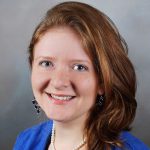
“Knowledge is something that doesn’t work well fragmented,” as John Willinsky remarked in his presentation at this year’s DLF Forum. Many of this year’s forum sessions focused on bringing ideas and people together, while creating the infrastructure and workflows that would let us more effectively share the resources we have already collected and curated.
It’s been an honor to join this year’s conversation as a DLF Fellow. In my current and recent work at Colby College and UC Berkeley, I’ve been interested in how we might use digital libraries and archives to better share knowledge about cultures worldwide. As Andrew Asher and Lori Jahnke have noted, qualitative research is intricate and often contains personally identifying information. Yet we all benefit from open access to selected interviews, images, or audio files from past anthropological research — and when we can return cultural heritage to source communities through online libraries and archives.
Given the challenges of sharing and preserving qualitative research, I found a number of sessions to be informative — especially Jack Reed and Andrew Battista on geospatial data and metadata tools, Safiya Noble’s moving keynote on the social impact of our technological choices, and Catherine Mitchell, Kirk Hastings, and Martin Brennan on how to get faculty engaged in open access mandates at the local university level.
I leave feeling that I’ve learned a lot at this year’s forum, and yet have even more to learn. One of the greatest benefits has been in connecting with other LIS professionals. Even if you didn’t have the chance to attend this year’s DLF, I hope you’ll read through our blog posts and join us on Twitter — you can always find me @celiemme or search for #DLFforum to learn more!
